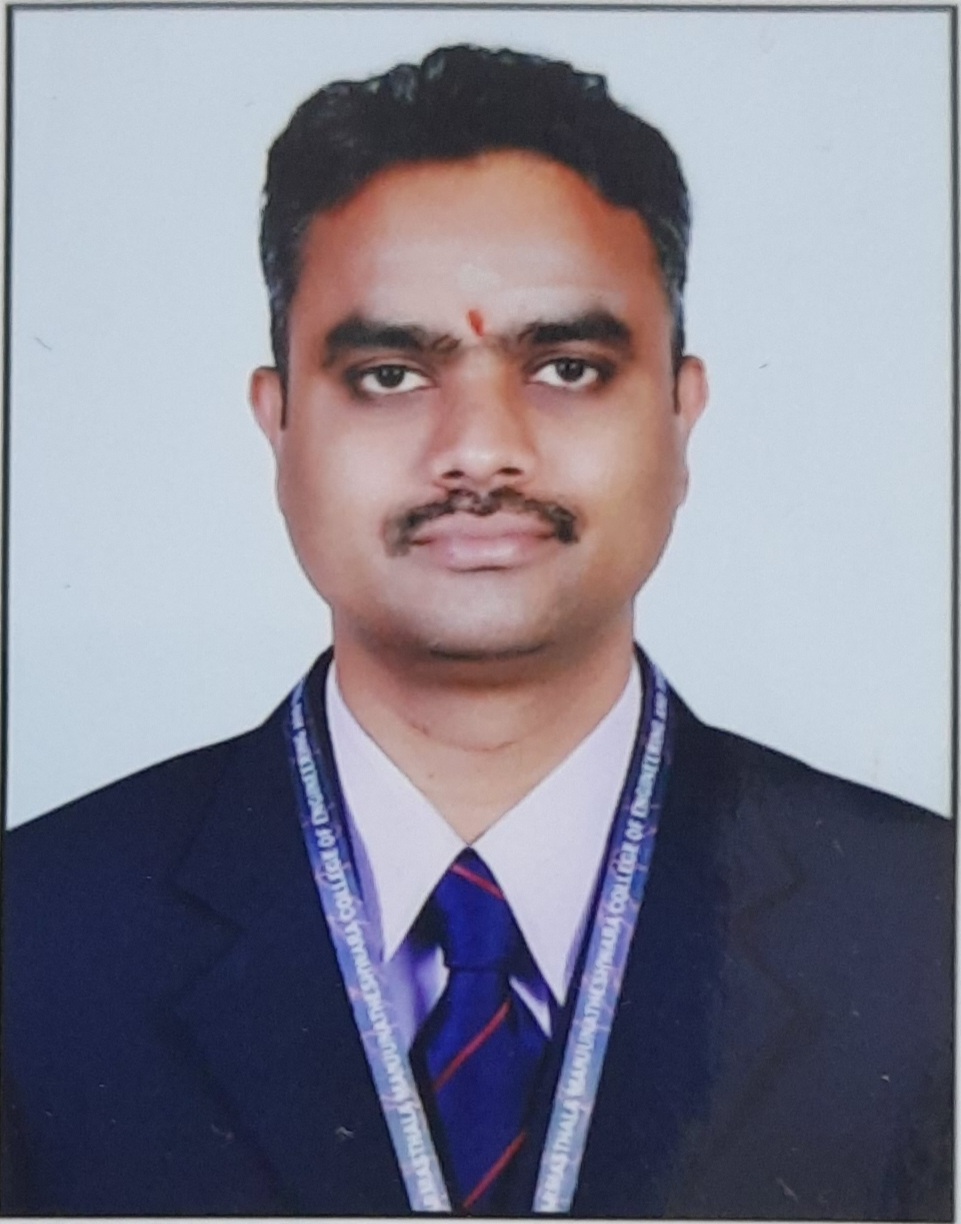Vision:
To provide strong mathematical foundation to develop competent and ethical engineering professionals.
Mission:
- To have the most appropriate syllabi.
- To practice innovative teaching learning with suitable modern tools.
- To integrate enhanced research in teaching.
- To involve industrial expertise for data/physical interpretation in industrial environment.
- To create awareness for practising values.
Strengths of the Department
- Strong teaching learning process.
- Qualified and competent faculty with an average experience of more than 15 years.
- 88 % of the faculties are Ph. D holders.
- Faculty development program and QIP are in force.
- Very cordial student teachers relationship.
- Department library with around 300 books for ready reference for students and faculties.
POs
Programme Outcomes(POs)
Outcomes are the skills and knowledge which the students have at the time of graduation. This will indicate what student can do from subject-wise knowledge acquired during the: PROGRAM OUTCOMES (POs)
Engineering Graduates will be able to:
| PO | Short Title of the PO | Description of the Programme Outcome (PO)
Engineering Graduates will be able to: |
|---|
| PO-1 | Engineering knowledge | Apply the knowledge of mathematics, science, engineering fundamentals, and an engineering specialization to the solution of complex engineering problems. |
| PO-2 | Problem analysis | Identify, formulate, review research literature, and analyse complex engineering problems reaching substantiated conclusions using first principles of mathematics, natural sciences, and engineering sciences. |
| PO-3 | Design/development of solutions | Design solutions for complex engineering problems and design system components or processes that meet the specified needs with appropriate consideration for the public health and safety, and the cultural, societal, and environmental considerations. |
| PO-4 | Conduct investigations of complex problems | Use research-based knowledge and research methods including design of experiments, analysis and interpretation of data, and synthesis of the information to provide valid conclusions. |
| PO-5 | Modern tool usage | Create, select, and apply appropriate techniques, resources, and modern engineering and IT tools including prediction and modeling to complex engineering activities with an understanding of the limitations. |
| PO-6 | The engineer and society | Apply reasoning informed by the contextual knowledge to assess societal, health, safety, legal and cultural issues and the consequent responsibilities relevant to the professional engineering practice. |
| PO-7 | Environment and Sustainability | Understand the impact of the professional engineering solutions in societal and environmental contexts, and demonstrate the knowledge of, and need for sustainable development. |
| PO-8 | Ethics | Apply ethical principles and commit to professional ethics and responsibilities and norms of the engineering practice. |
| PO-9 | Individual and team work | Function effectively as an individual, and as a member or leader in diverse teams, and in multidisciplinary settings. |
| PO-10 | Communication | Communicate effectively on complex engineering activities with the engineering community and with society at large, such as, being able to comprehend and write effective reports and design documentation, make effective presentations, and give and receive clear instructions. |
| PO-11 | Project management and finance | Demonstrate knowledge and understanding of the engineering and management principles and apply these to one’s own work, as a member and leader in a team, to manage projects and in multidisciplinary environments. |
| PO-12 | Life-long learning | Recognize the need for, and have the preparation and ability to engage in independent and life-long learning in the broadest context of technological change. |
Faculty

Dr. Dhanapal Basti
Professor

Dr. Jenifer J. Karnel
Associate Professor & HOD

Dr. Shailaja S. Shirkol
Assistant Professor

Dr. Varsha D Joshi
Assistant Professor

Dr. Basavaraj. S. Hoogar
Assistant Professor

Dr. Preeti B Jinagouda
Assistant Professor

Dr. Shrikant Kanguri
Assistant Professor

Prof. Prakash S Badiger
Senior Lecturer
About
Dr. Dhanapal . Basti is a Professor in the Department of Mathematics at SDM College of Engineering and Technology, Dharwad, Karnataka, INDIA.
He obtained his Bachelor degree in Science and Master degree in Mathematics both from Karnatak University, Dharwad. He obtained his Ph.D. degree from Karnataka University Dharwad, Karnataka.
He guided 02 Ph.D students under Visvesvaraya Technological University (VTU), Belagavi and presently guiding 03 Ph.D. students for doctoral degree under VTU, Belagavi.
He has published 14 Research papers in International Journals and 03 Research papers in National Journals. Also presented 04 research papers in International conferences and 02 research papers in National conferences and organized 02 workshops.
He has also served as HOD of Mathematics department, for two terms. His total teaching experience is 33 years.
Qualifications: MSc., Ph D
Publications: 17
Phone Number: 9900 364 739
Email: [email protected]
Other Achievements:
- o Guided 2 Ph.D students under Visvesvaraya Technological University (VTU), Belagavi.
- Recipient of Research paper publication Award of SDMCET, Dharwad for the year 2008.
- Recipient of Research paper publication Award of SDMCET, Dharwad for the year 2009.
- Appointed as subject expert for VTU, EDU-SAT Programme-16. Participated in “VTU EDU-SAT Programme-16” to deliver Lecture on subject “Engineering Mathematics-2”. (February- 27,28 and 29th, March- 26,27 & 28 and April- 10th & 11th 2012).
VidwanSocial Links:
About
Dr. Jenifer J. Karnel is an Associate Professor and Head in the department of Mathematics at SDM College of Engineering and Technology, Dharwad, Karnataka, India. She obtained her Bachelor degree in Science and Master degree in Mathematics both from Karnatak University, Dharwad. She obtained her M.Phil degree and Ph.D degree from Karnatak University, Dharwad. She is guiding 3 Ph.D students and one students is awarded with Ph.D under her guidance, in Department of Mathematics research centre SDMCET, Dharwad. She has organized 2 workshops, one FDP and three guest lectures. Published 18 research papers in International Journal.
Qualifications: MSc., Ph D
Publications: 18
Phone Number: 8884 419 523
Email: [email protected]
Other Achievements:
- Guided 3 Ph.D. students under Visvesvaraya Technological University, Belagavi.
Vidwan-ID: 257375
- Vidwan 257375
Social Links:
About
Dr. Shailaja S. Shirkol is an Assistant Professor in the Department of Mathematics at SDM College of Engineering and Technology, Dharwad, Karnataka, India. She obtained Master of Science degree in Mathematics from Karnatak University, Dharwad. M.Phil. from Periyar University, Salem and Ph.D. from Karnatak University, Dharwad. Published over 46 research papers in national and international journals. Presented 10 research papers at conferences. Awarded Junior Research Fellowship from UGC, New Delhi under the Research Fellowship in Sciences for Meritorious Students (RFSMS) for her doctoral program.
Guided 6 Ph.D. students under Visvesvaraya Technological University, Belagavi. Currently guiding 2 Ph.D. students under VTU, Belagavi.
Attended Asian Academic Seminar in Tokyo, Japan with DST-JSPS financial support.
Organized a workshop on Image Processing and Machine Learning based on Mathematical Modeling. Organized a 3-day Introductory Faculty Development Program (FDP) on Universal Human Values (UHV). Organized two invited talks.
She is having following Professional Memberships: Life member of Ramanujan Mathematical Society, Life member of Academy of Discrete Mathematics and Applications, Life member of International Association of Engineers (IAENG), Member of Mathematics Teachers Association, Senior member of Industry Institution of Industrial Engineering.
Qualifications: MSc., M.Phil. PGDCA, Ph D.
Publications: 46
- National Journals: 02 and International Journals: 44
Phone Number: 9482 560 244
Email: [email protected]
Vidwan 257237Other Achievements:
- Received award of Junior Research Fellowship from UGC, New Delhi under the Research Fellowship in Sciences for Meritorious Students (RFSMS) for doctorate program. Participated in Asian Academic Seminar held at Tokyo, Japan with DST-JSPS Financial support. Guided 3 Ph.D. students under Visvesvaraya Technological University, Belagavi.
Social Links:
About
Dr. Varsha D Joshi is an Assistant Professor in the Department of Mathematics at SDM College of Engineering and Technology, Dharwad, Karnataka, India. She obtained her Bachelor degree in Science, Master degree in Mathematics, and Doctorate from Vishweshwaraya Technological University, Belagavi. She Presented 4 research articles in National conferences, published 05 research articles in International Journal.
Qualifications: MSc., Ph D
Publications:
- International Journals: 05
Phone Number: 8147 886 040
Email: [email protected]
Vidwan 257534Other Achievements:
Guiding one research student in the department research center under Visvesvaraya Technological University, Belagavi Got ‘Academic Excellence Award’ at the higher education level from InSc Institute of Scholars New Delhi.
Social Links:
About
Prof. Prakash S Badiger is a Lecturer in the Department of Mathematics at SDM College of Engineering and Technology, Dharwad, Karnataka, India. He obtained his Bachelor of Science (B.Sc) degree in Physics, Chemistry &Mathematics and Master of Science (M.Sc) in Mathematics, both from Karnatak University Dharwad (KUD). He has attended many Conferences/Seminars and Workshops at various parts of the country. He also worked as coordinator for conducting many workshops.
Qualifications: MSc.
Teaching Experience in Years: 28
Phone Number: 9482 560 244
Email: [email protected]
Social Links:
About
Dr. Shreekant Kanguri is a Assistant Professor in the Department of Mathematics at SDM College of Engineering and Technology, Dharwad, Karnataka, India.
He obtained his Bachelor of Science (B.Sc) degree in Physics, Chemistry & Mathematics and Master of Science (M.Sc) in Pure Mathematics, both from Karnatak University Dharwad (KUD) also B.Ed. from KUD.
He Doctorate from Visvesvaraya Technological University, Belagavi. He published 06 Research articles and communicated 01 Research papers in the International Journals also attended many National and International Conferences/Seminars and Workshops at various parts of the country. He has presented 04 Research Papers in the International Conferences.
Qualifications: M.Sc., B.Ed., Ph.D.
Teaching Experience in Years: 13
Phone Number: 8660704812
Email: [email protected]
Social Links:
About
Dr.Preeti B Jinagouda is an Assistant Professor in the Department of Mathematics at SDM College of Engineering and Technology, Dharwad, Karnataka, India. She obtained Bachelor of Science from Karnatak Science College, Dharwad. Master of Science degree in Mathematics and PGDCA from Karnataka University, Dharwad. She obtained her Ph.D. degree from VTU, Belagavi. She published 4 research papers in International Journals and presented 5 research papers in conferences. She is a life member of Academy of Discrete Mathematics and Applications (ADMA).
Qualifications: M.Sc., PGDCA, Pursuing Ph.D.
Publications:
- International Journals: 03
Phone Number: 9036 242 778
Email: [email protected]
Vidwan 257534Social Links:
About
Dr. Basavaraj. S. Hoogar is an Assistant Professor in the Department of Mathematics at SDM College of Engineering and Technology, Dharwad, Karnataka, India. He obtained his Bachelor of Science (B.Sc) degree in Physics, Chemistry & Mathematics and Master of Science (M.Sc) in Applied Mathematics, both from Karnatak University Dharwad (KUD). He obtained Post Graduate Diploma in Computer Applications (PGDCA) from KUD. He also obtained Ph.D. degree from Karnatak University Dharwad, Karnataka, India. He published 13Research papers in the International Journals and also attended many National and International Conferences/Seminars and Workshops at various parts of the country. He has presented 24 Research Papers in National and International Conferences. He also worked a coordinator for conducting many workshops and training programmes. He served as a Resource Person for Guiding the Student’s community in various colleges.
Qualifications: M.Sc., PGDCA, Pursuing Ph.D.
Publications:
- International Journals: 13
Phone Number: 6363 841 112
Email: [email protected]
Other Achievements:
- Received a Best Research Paper Presentation Award in Three days International Conference on Analysis and Applied Mathematics (ICAAM-2022) during 26th to 28th April, 2022 held at Ayya Nadar Janaki Ammal College, Sivakasi and Ramco Institute of Technology, Rajapalayam, Tamilnadu, India. Also, worked a co-ordinator for conducting many workshops and training programmes. He served as a Resource Person for Guiding the Student’s community in various colleges.
Social Links:
About
Prof. Shreekant Kanguri is a Lecturer in the Department of Mathematics at SDM College of Engineering and Technology, Dharwad, Karnataka, India. He obtained his Bachelor of Science (B.Sc) degree in Physics, Chemistry & Mathematics and Master of Science (M.Sc) in Pure Mathematics, both from Karnatak University Dharwad (KUD). He obtained B.Ed. from KUD. He also pursuing Ph.D. degree Ph.D.in VTU, Belagavi. He published 02 Research papers and communicated 04 Research articles in the International Journals also attended many National and International Conferences/Seminars and Workshops at various parts of the country. He has presented 04 Research Papers in the International Conferences.
Qualifications: : M.Sc., B.Ed., Pursuing Ph.D.
Publications:
- International Journals: 03
Phone Number: 8660 704 812
Email: [email protected]
Social Links:
Space, Infrastructure & Facilities










